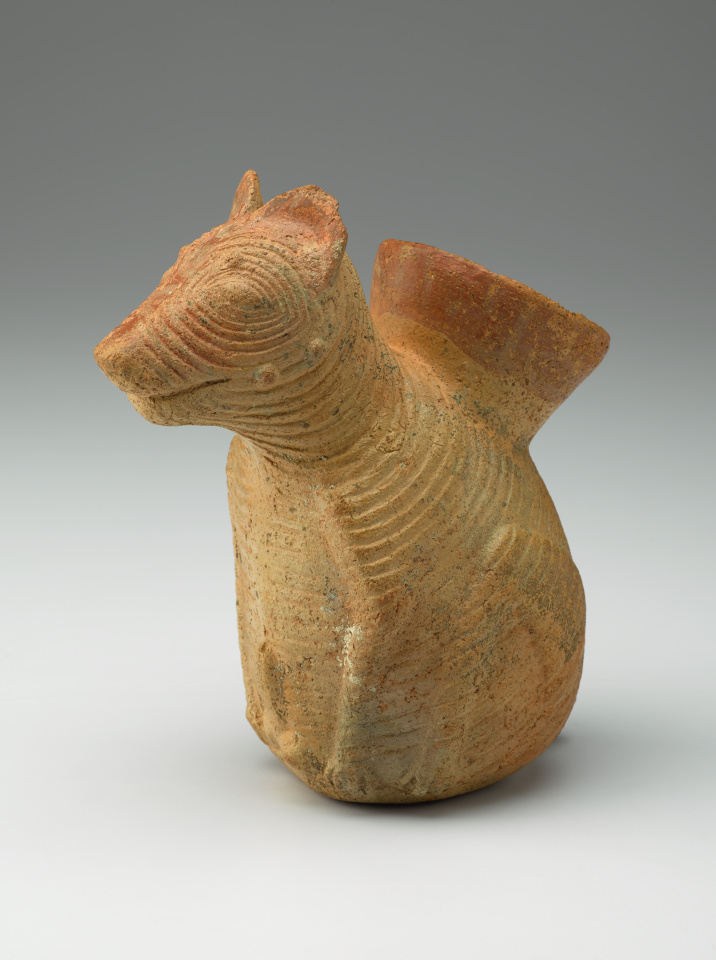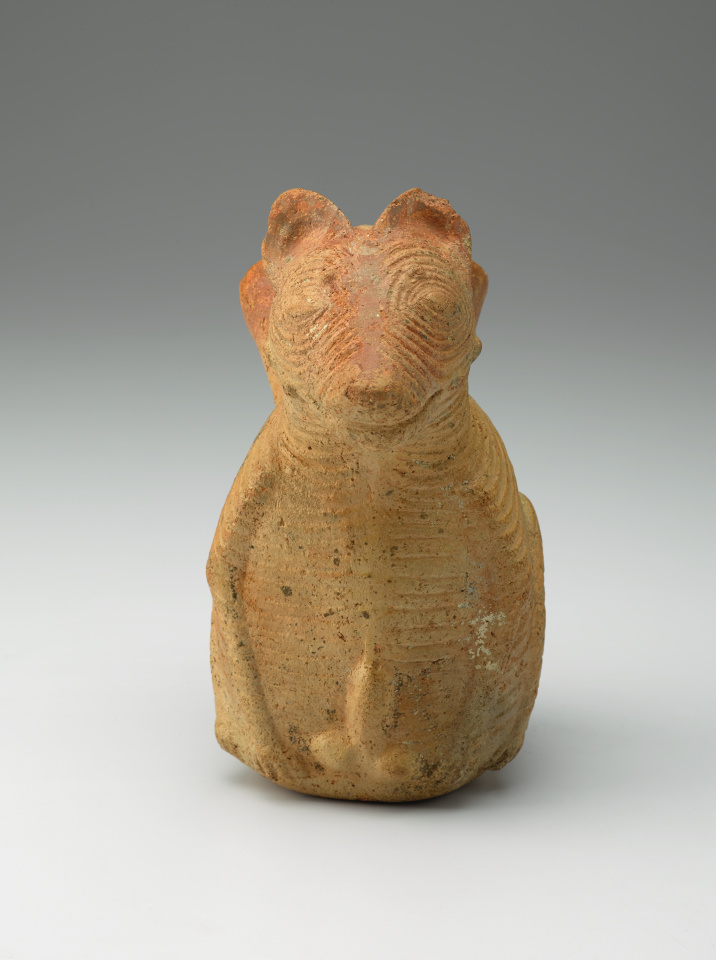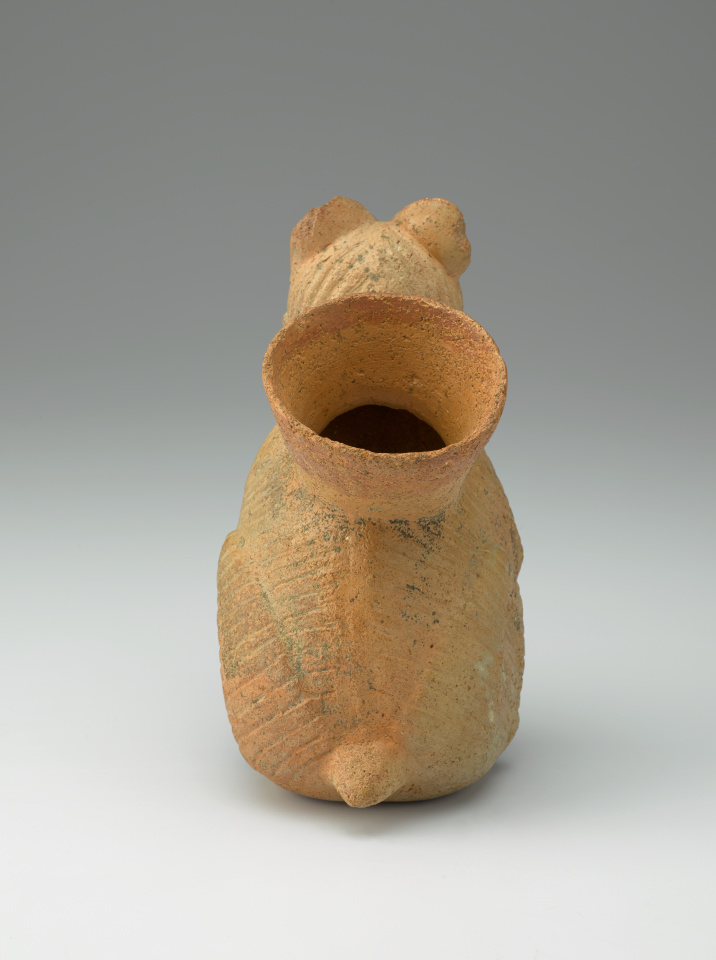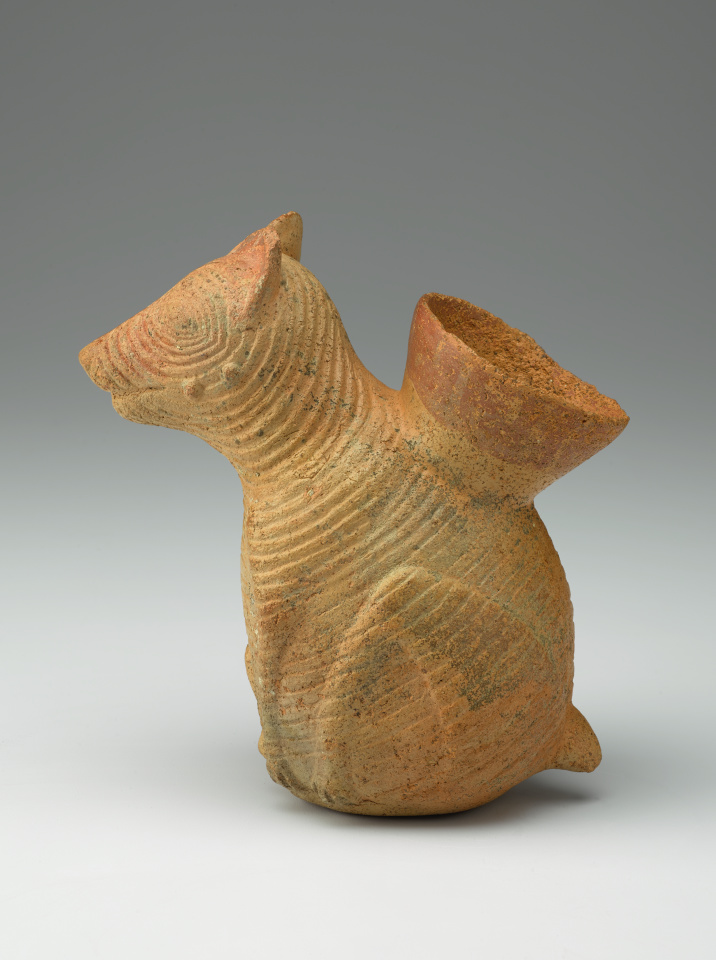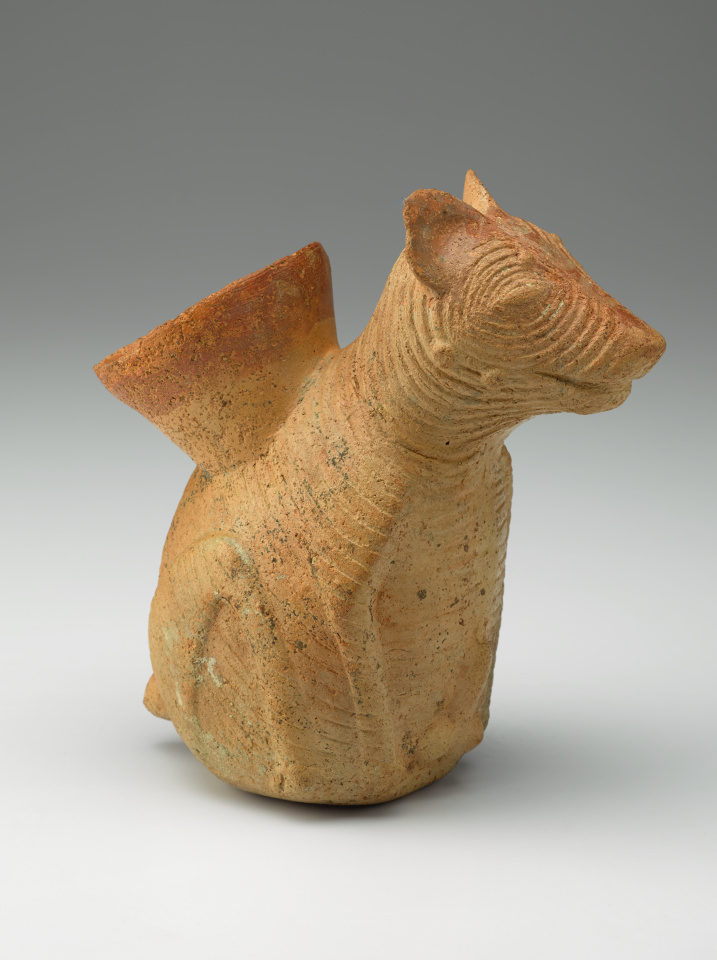Dog (work of art)
Artwork Info
About
Key Ideas
- This ceramic vessel is shaped like a sitting dog, with the spout attached to the dog’s back. Its surface is covered in incised lines, or cuts in the pottery, that create the appearance of wrinkled skin. There are also small “warts” affixed to the dog’s face, and it has upright ears. These details resemble the viringo dog, a breed of domesticated dog that is native to Peru.
- The viringo dog is a hairless breed, known for its appearance of wrinkled skin and warts. Viringos are considered to be loyal and protective of their families. Their baldness makes them radiate heat, and they can be used to treat pain and to keep warm on cold nights.
- Viringo dogs were important to ancient American cultures who included them in burial ceremonies and depicted them in art.
Learn More
This dog-shaped effigy vessel is from the central coast of present-day Peru. It represents a breed of dog known as the viringo, or Peruvian hairless dog. Viringos were prized by ancient American cultures who included them in burial ceremonies and depicted them on painted pottery. Today the viringo is an important symbol of Peruvian culture.
The dog’s body and legs are sculpted in a seated pose, and its head includes carved facial features and upright, alert ears. The curved, horizontal lines that cover the surface of this vessel resemble the viringo’s wrinkled, hairless skin. Viringo dogs’ bald bodies radiate heat, so many people in Peru use the dogs as a heat source (like a living heating pad) to snuggle up with in cold temperatures and to help ease pain. This breed of dog is smart, loving, lively, and protective, and it is valued as a companion pet and for its healing abilities.
Additional Resources
Resources for Teachers:
- Read an article about the Peruvian hairless dog and its presence in modern-day Peru.
- Read an article about the symbolism of dogs in art.
Resources for Students:
- Learn more about Peru.
- Explore facts about Peru.
- Learn more about Peruvian hairless dogs.

